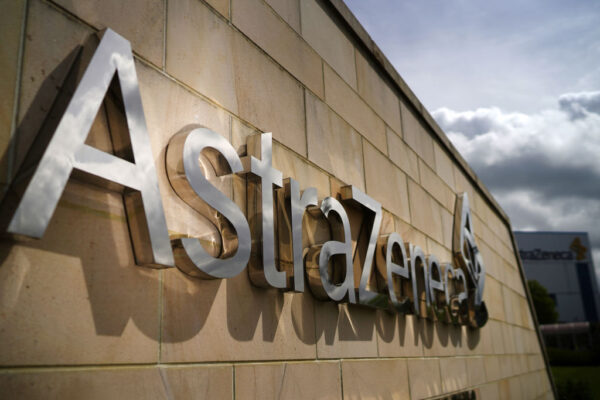
AstraZeneca is bolstering its rare disease pipeline with a deal to buy Amolyt Pharma, a biotech company in late-stage development with a therapy designed to treat a rare hormone deficiency whose only FDA-approved treatment will soon cease production.
According to deal terms announced Thursday, AstraZeneca is paying Amolyt shareholders $800 million up front. Another $250 million is tied to the achievement of a regulatory milestone that was not disclosed. Considering that the drug is in Phase 3 testing, that milestone could be a regulatory approval.

Unlocking Transparency in PBM Pricing
The TSX Venture Exchange has a strong history of helping early-stage health and life sciences companies raise patient capital for research and development.
Lyon, France-based Amolyt is developing a therapy for hypoparathyroidism, a disease in which the parathyroid glands do not produce enough parathyroid hormone. This hormone is important for regulating calcium and phosphate levels in the blood. Disease symptoms include tingling or burning sensations in the fingertips and toes, muscle aches or cramps, muscle twitching or spasms, and fatigue.
Hypoparathyroidism disproportionately affects women. Calcium and vitamin D supplements can help, but at high doses, calcium supplements can lead to gastrointestinal problems such as constipation. When supplements alone aren’t enough to manage hypoparathyroidism, the only FDA-approved therapy is Natpara, an engineered version of parathyroid hormone sold by Takeda Pharmaceutical.
Amolyt could bring patients a different way to manage hypoparathyroidism. The biotech’s drug candidate, eneboparatide, is a peptide designed to bind to PTH receptor 1, the receptor that native parathyroid hormone binds to. In Phase 2 results reported in 2022, Amolyt said its drug led to normal calcium levels in the blood as well as the potential to eliminate the need for daily calcium and vitamin D supplements. Furthermore, the drug preserved bone mineral density, which is important for patients at higher risk of developing bone problems such as osteopenia or osteoporosis. Amolyt has said it expects preliminary Phase 3 data will become available by the end of 2024.
The market need for new hypoparathyroidism treatments is becoming urgent. Takeda’s Natpara (Natpar outside of the U.S.) has had a rocky commercialization history since its FDA approval in 2015. In 2019, the FDA issued a recall due to potential contamination from tiny rubber particles from the cartridge housing the injectable product. Takeda’s efforts to resolve the problem to the FDA’s satisfaction have been unsuccessful. In late 2022, Takeda said it planned to discontinue manufacturing of Natpara/Natpar by the end of 2024. After that, the company said it would supply the remaining doses of the drug until inventory is depleted or the product is expired.

The Impact Brands: Empowering Wellness Through Natural and Holistic Solutions
In an era of escalating healthcare costs and a growing preference for natural, holistic approaches to health, The Impact Brands emerges as a collective of diverse brands dedicated to supporting overall wellness through natural means.
The Amolyt acquisition brings AstraZeneca into a group of companies vying to fill the hypoparathyroidism treatment need that will be left when Takeda’s drug is no longer available. An FDA decision is expected in May for Ascendis Pharma’s peptide drug Transcon PTH. Extend Biosciences is in Phase 1 testing with a drug derived from parathyroid hormone. MBX Biosciences has reached Phase 2 testing with a peptide drug. These drug candidates are injectable. Septerna is developing an oral drug for hypoparathyroidism. Last year, the South San Francisco-based startup raised $150 million in financing to advance the small molecule to Phase 1 testing.
Amolyt last raised money in early 2023, a €130 million (about $138 million) Series C financing to support its pipeline. Besides the hypoparathyroidism program, that pipeline includes AZP-3813, a potential treatment for acromegaly, a disease in which the body produces too much growth hormone. Phase 1 testing began last summer. Amolyt has said it expects preliminary data in the first half of 2024.
AstraZeneca expects to complete the Amolyt acquisition by the end of the third quarter of this year. When the deal closes, Amolyt will become part of Alexion, AstraZeneca Rare Disease, the pharmaceutical giant’s Boston-based rare disease division. AstraZeneca said the acquisition will enable it to expand its rare disease research into endocrinology.
“Chronic hypoparathyroid patients face a significant need for an alternative to current supportive therapies, which do not address the underlying hormone deficiency,” Marc Dunoyer, CEO of Alexion, AstraZeneca Rare Disease, said in a prepared statement. “As leaders in rare disease, Alexion is uniquely positioned to drive the late-stage development and global commercialization of eneboparatide, which has the potential to lessen the often debilitating impact of low parathyroid hormone and avoid the risks of high-dose calcium supplementation.”
Photo: Christopher Furlong, Getty Images












